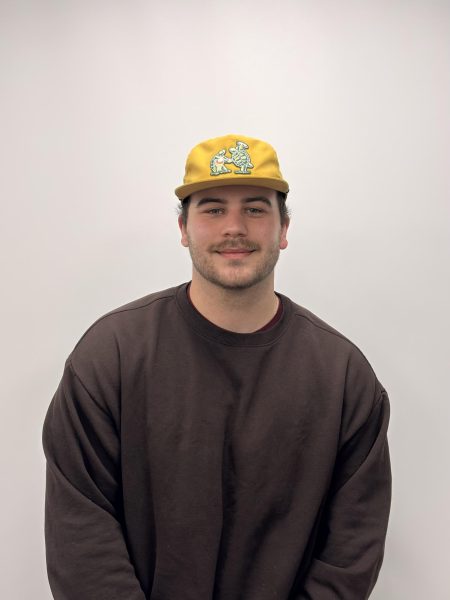Genocide survivors share experiences at Social Justice Festival
October 5, 2016
There are many things that I can mention and you will know from experience what I am speaking of. When I speak of water, you have encountered this, thus you can associate the thoughts and feelings that you have attributed to this existing fluid. When I speak of love, the word alone might carry with it memories of endearing parents, or the lacking of this. Likely, you who are reading this are from Buffalo also and have heard of The Anne Frank Project, but for those of you who have not, I will do my best to explain in words an experience that can only truly be felt when experienced in person.
In the past, I had read of refugees. I have peered the words of their stories and struggles; however, the emotional binding experienced through mere ink spattering a page will forever fall short from that felt when confronted face to face with the soul that has experienced tragedies beyond our comprehension, and lived to share that story.
I would also like to say how lucky I am to have only heard these story rather than those who have been forced to live through such horrific times. To those who have these stories, please know that the obstacles in existence that you have triumphed over are not unseen. Please be comforted in the knowledge that your stories have not fallen upon deaf ears.
At SUNY Buffalo State in the Social Hall of Campbell Student Union, Theater Professor Drew Kahn introduced and set the stage for three survivors.
Sophia Veffer, an adorable elderly woman sat in the middle of the three and was the first to speak. We’ve all heard of Anne Frank and know of the horrific mass deaths that came for the Jewish community during World War II. Seated in our comfortable chairs reading about World War II, we often gain a detached understanding of such events, and calling it history can even comfort us in a sense with the respect that it seemingly happened so long ago.
Sophia, the lively woman who sat in front of me, lived through this, and even went to school with Anne Frank. She spoke in a soft, yet strong tone, and explained the process of dehumanization that lead to so many deaths.
The Jewish people were assigned identification numbers which separated them from the rest of those living in Germany. They were given patches of stars that they were forced to wear and were assigned a curfew. Through this process, not only did the Nazis know exactly who the Jews were, but also where they lived. They also knew when they would be home which, when ready, made it that much more simple to hijack them from existence.
Once abducted, they were corralled into a boxcar. Stuffed beyond the max capacity of an object not intended for human transport, absent of bathrooms or beds. They were transported for three days. Crammed in together, they defecated and slept in these conditions until they arrived at Auschwitz.
During her talk, Sophia stated, “People ask, ‘Why did they [the Jews] let this happen?’… We didn’t know what was on the other side of those train tracks.”
She went on and reiterated that the immediate spread of information through technology that we are gifted with in this day and age was not so back then. Their friends and family could not simply tweet a global message that they should not get on that train.
The next to speak was Salumu Honore. Salumu is a survivor of the continuing civil unrest in The Democratic Republic of Congo. As I said before, there are some things that one cannot put into text in order to capture the blank stare of unforgetting that ravage one’s mares of the day and night behind closed eyelids; and so I will leave it and say that this man has watched his entire village massacred with gunshots. If you seek more beyond that, then I suggest you hear it from him.
Deo Rai from Bhutan, who spent 18 years in a refugee camp in Nepal, was the last to speak. With a brilliant smile, he shared his experience of gratitude for life. He spoke of the profound appreciation that he has for his family and friends that he has met along the way. They (Deo and his friends) shared with us the art that they had created, which added a much appreciated visual aspect through which you truly felt the extent of appreciation for beauty in even the most dreary of places.
The following day I attended the closing meditation in which Deo participated in, as well. Being welcomed to spend this moment with them through a guided meditation was a wonderful experience which I reciprocated in conversation with him afterword about my Buddhist practice.
Through these three survivors sharing their experiences, we are gifted a wonderful thing: hope. When life beckons, there will always be obstacles. However, from breaking through, we become victors; and via sharing these experiences, we become a shining beacon of hope for another.
email: [email protected]



